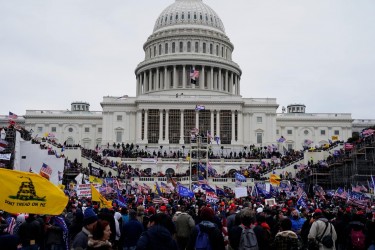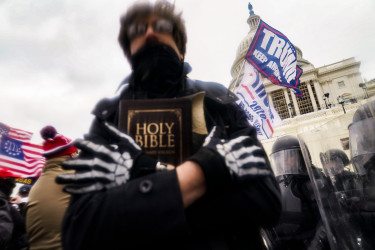So what did happen on Jan. 6? To help answer that question, POLITICO Magazine assembled a roundtable of distinguished scholars and writers — Ruth Ben-Ghiat, professor of history and Italian studies at New York University; Ryan McMaken, editor of Mises Wire and The Austrian; Scott Althaus, political science professor and director of the Cline Center for Advanced Social Research at the University of Illinois Urbana-Champaign; and Matt Cleary, associate professor of political science at Syracuse University — who specialize in the study of political instability and polarization, not just in the United States, but globally. Over the course of an hour, they came at that question from multiple disciplines, different regional and historical frameworks and diverse ideological viewpoints.
If there is one takeaway from the conversation, it’s that we need to use a wider lens on Jan. 6 if we have any hope of understanding it. Our system of government is no more unique or less fragile than that of other countries, at other moments in time. To arrive at the right lexicon, we need to take the blinders off.
Josh Zeitz: Ever since January 6, 2021, we have struggled to find the right words to describe what happened that day. Was it an insurrection? Was it a coup? Was it a protest that simply got out of hand? I’d like to ask each one of you what word you think best describes the events that day and why.
Ruth Ben-Ghiat: The night it happened I called it a coup. Technically, it is a self-coup — autogolpe — a lot of our coup language comes from Latin America and Spanish for reasons to do with the Cold War. This was an operation from the inside — somebody who’s already in power and wants to stay in power. And also an inside job in that 57 GOP officials were at the rally. The coup culminated January 6, but it’s part of a thing that started in November and involved the elite of many institutions in the party. So that’s why I call it a coup attempt.
Josh Zeitz: Ryan, I imagine you take a somewhat different point of view.
Ryan McMaken: Well, my view is that it is a riot in the sense that it’s difficult to attribute any particular goal to the people who were actually involved at the Capitol. I mean, certainly last I checked, 11 people were charged with seditious conspiracy. So that would imply that at least some people involved had some particular goal in mind.
























